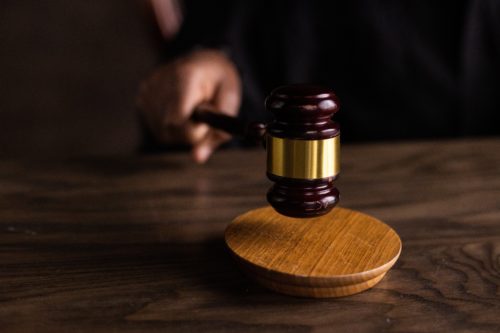
The United States District Court for the Middle District of Florida ruled Monday in a decision by Judge Carlos Mendoza (an Obama appointee) that five administrators at the University of Central Florida may be personally liable for retaliating against Professor Charles Negy after he exercised his First Amendment right to speak freely as a private citizen on racial issues.
Charles Negy Speaks Out Against Campus Orthodoxy
Professor Charles Negy has taught at the University of Central Florida (UCF) for over 20 years as a professor of psychology. Although Negy, who is both gay and Hispanic, was identified by UCF as a “diversity enhancement hire,” he holds opinions that do not align with what UCF apparently expects minority individuals to believe about matters like affirmative action and “anti-racism.”
In the spring of 2020, at the height of America’s racial reckoning, Negy put himself in the crosshairs of the UCF administration by posting several tweets on his personal Twitter account expressing the view that Black Americans are not systemically oppressed in the United States.
University of Central Florida Targets Negy for his Protected Speech
The first and probably most predictable response was the widespread demand that UCF fire Negy for his tweets; #UCFFireHim began trending on Twitter soon after his posts. The UCF administration quickly got involved by openly soliciting complaints against Negy on the university’s website. After identifying Negy by name and saying that his tweets “run completely counter to our university’s core values of diversity and inclusion,” UCF administrators stated that
Members of UCF’s leadership urge current and former students to report discriminatory behavior they may have experienced from faculty and staff.
The message even noted that people could submit “anonymous complaints.”
Not surprisingly given the Twitter campaign to get him fired, current and former students obliged by filing endless complaints against Negy, many of them anonymous. UCF soon placed Negy under “investigation” for alleged “discriminatory harassment in the course of his classroom teaching.” Up until this point, UCF had always praised Negy for his teaching and service to the University. In fact, in the four years prior to the investigation, Negy had received the rating of “outstanding” for his instruction and mentorship of students.
No sooner had he expressed unpopular opinions, however, than UCF subjected Negy to what can only be described as an inquisition. After being denied meaningful notice of the allegations, Negy was forced to submit to eight hours of interrogation, during which he was grilled about the details of the past 15 years of classroom teaching. When his memory proved imperfect, UCF added the charge of providing false information during an investigation. And although tenured professors are generally entitled to 6 months’ notice of termination under UCF’s faculty collective bargaining agreement, a UCF administrator denied him this notice under an exception for professors who “jeopardize the safety or welfare of…students.” Suddenly stripped of his income, Negy — who was the sole caregiver to his physically and mentally disabled brother — was forced to sell his home and move in with a relative. He was soon diagnosed with anxiety and depression, despite no prior history of either.
Fortunately, UCF’s faculty union assisted Negy in filing a grievance that ultimately led an arbitrator to order UCF to reinstate him to his faculty position with back pay. Once he got his job back, Negy filed a federal lawsuit alleging, among other things, that UCF administrators had violated his First Amendment rights by retaliating against him for his constitutionally protected speech on Twitter.
The Court Denies Qualified Immunity to UCF Administrators
The Middle District of Florida rejected UCF’s argument that its administrators were entitled to “qualified immunity” from Negy’s First Amendment retaliation claims. Under the doctrine of qualified immunity, government employees (such as state university administrators) are immune from personal liability for violating an individual’s constitutional rights unless that right is “clearly established.” While the idea behind qualified immunity is to allow government employees to do their jobs amidst an ever-changing legal landscape without the constant fear of liability, the reality is that the doctrine too often allows government employees to escape liability for deliberately heinous conduct.
In this case, however, Judge Mendoza denied qualified immunity to the five UCF administrators who played critical roles in Negy’s termination. The Court held that “[i]t is clearly established that a state employer may not retaliate against a state employee for engaging in constitutionally protected speech.” And while UCF argued that the student protests over Negy’s tweets caused a disruption that justified taking action, the court rejected this argument:
Even if the speech caused protests and campus unrest, it does not necessarily equate to an inefficient functioning of the university’s public service: delivering education to its students. Disruption, debate, disagreement, and protest happen at educational institutions—whether the result of athletic wins and losses, controversial speakers and texts, or current national and global events.
As the judge further noted, “The need to give in to the demands an offended, angry student body is not a basis to knowingly engage in content discrimination.”
The Court’s denial of qualified immunity means that Negy may proceed with his First Amendment retaliation claims against the individual defendants, who – if Negy’s case is ultimately successful – may be held personally liable, including for punitive damages.
Negy is represented by Samantha K. Harris of Allen Harris PLLC and David R. Osborne of Goldstein Law Partners.